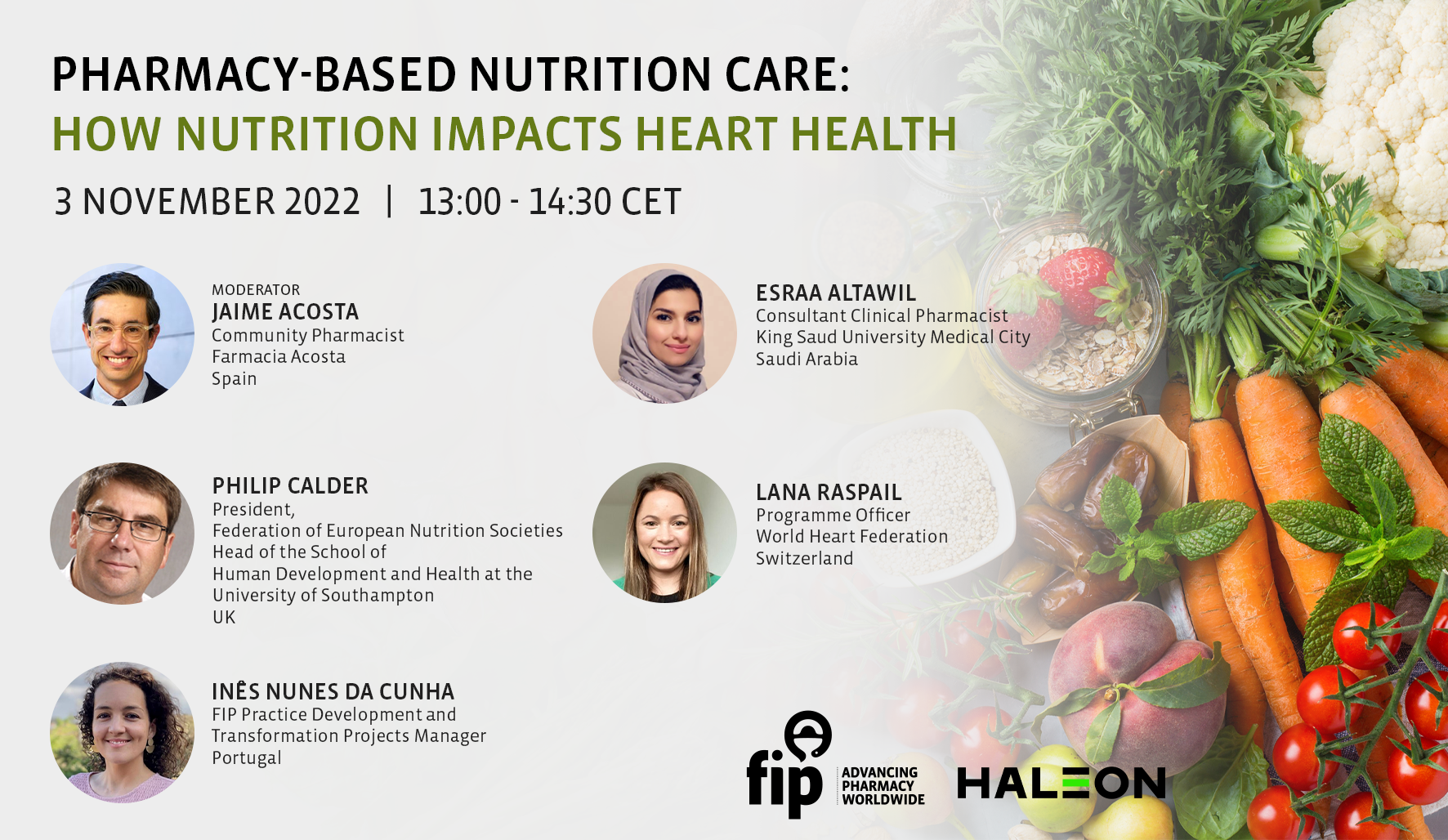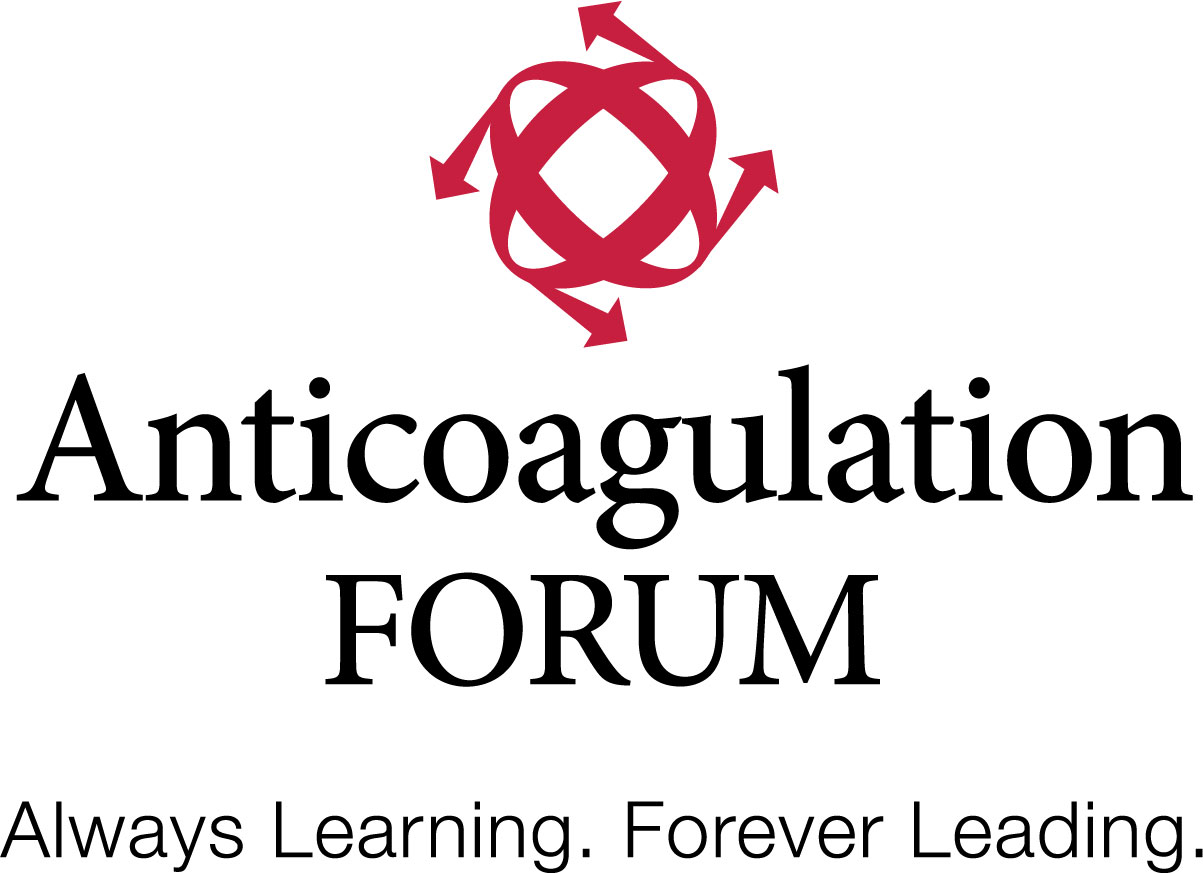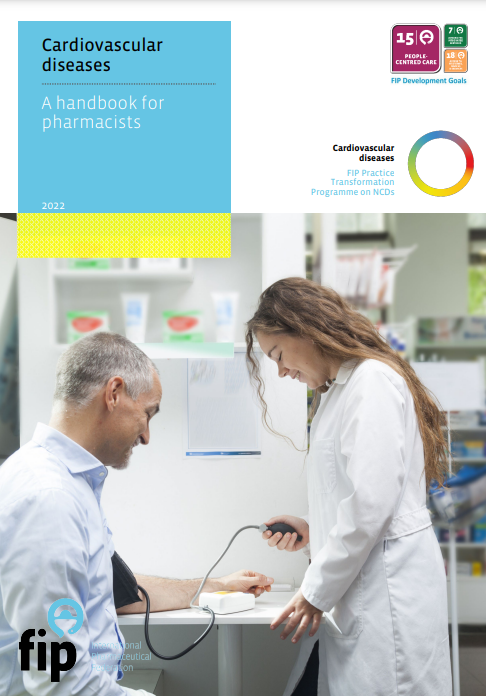
Cardiovascular diseases: A handbook for pharmacists (2022)
This handbook identifies and describes pharmacist-led interventions in cardiovascular disease prevention, screening, management, and treatment optimisation to both support their implementation in pharmacy practice and to support advocacy efforts towards the optimisation and expansion of pharmacists’ scope of practice in cardiovascular diseases and NCDs in general.
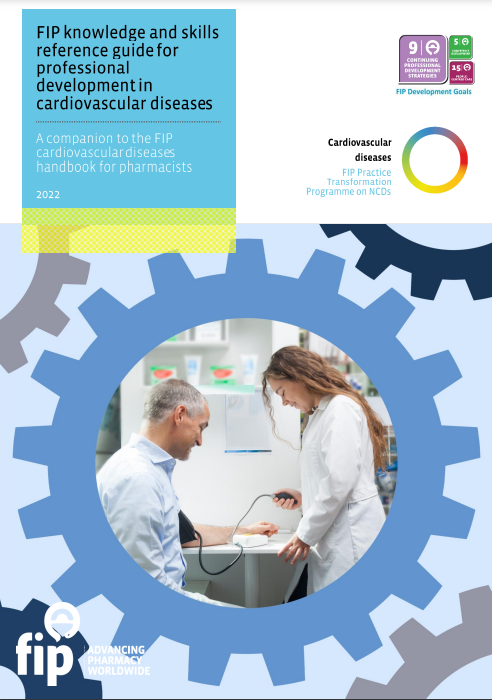
FIP knowledge and skills reference guide for professional development in cardiovascular diseases (2022)
This knowledge and skills reference guide provides a comprehensive list of required knowledge and skills in pharmaceutical and related care to support pharmacists to develop, upskill and refresh knowledge in cardiovascular diseases and related roles in pharmacy. The guide supplements the FIP handbook on cardiovascular diseases for pharmacists and was developed in consultation with a global reference group.
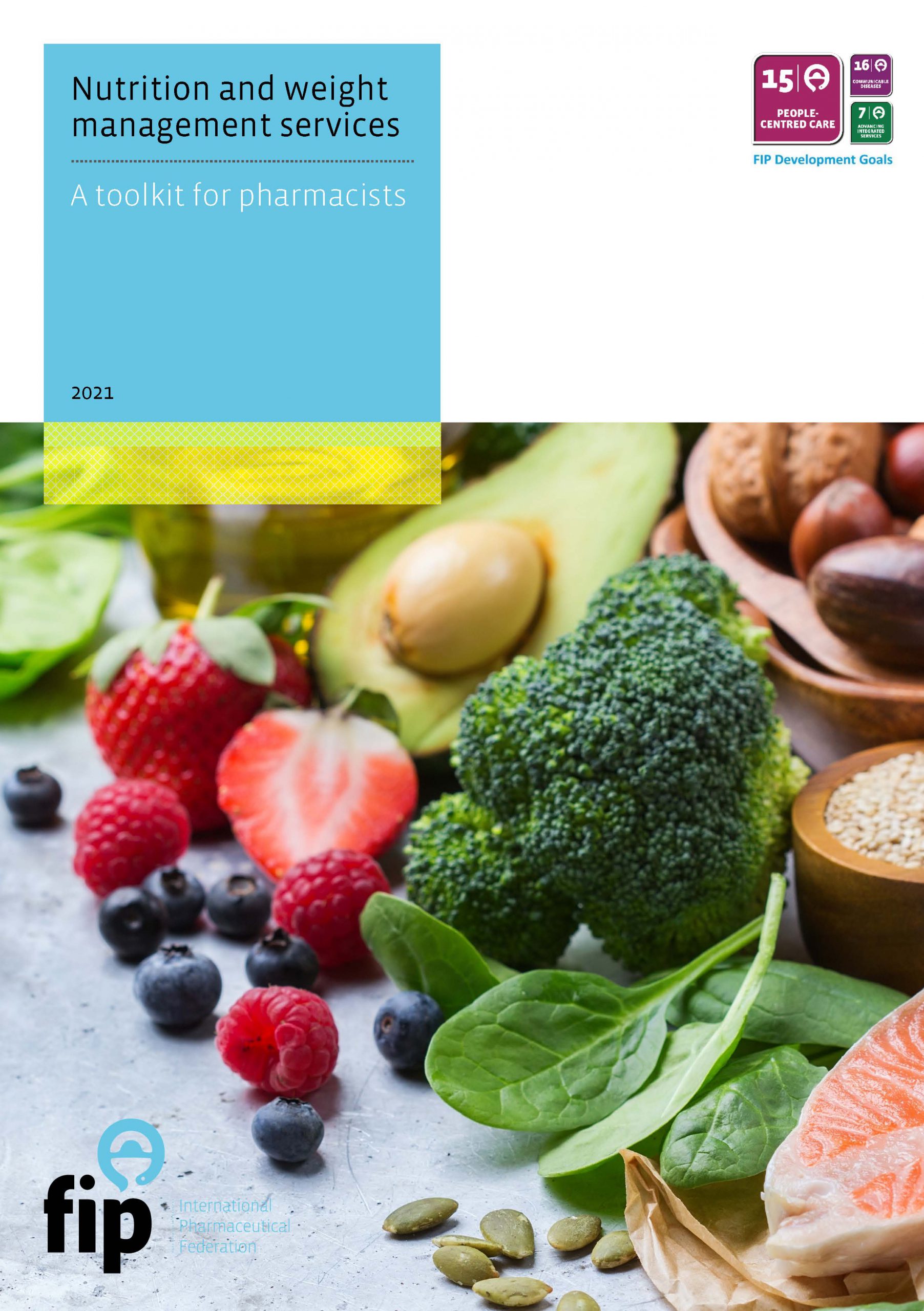
Nutrition and weight management services: a toolkit for pharmacists (2021)
This toolkit provides an international collection of best practices of professional services, evidence and guidance for nutrition-related and weight-management services both for pharmacist organisations and individual practitioners.
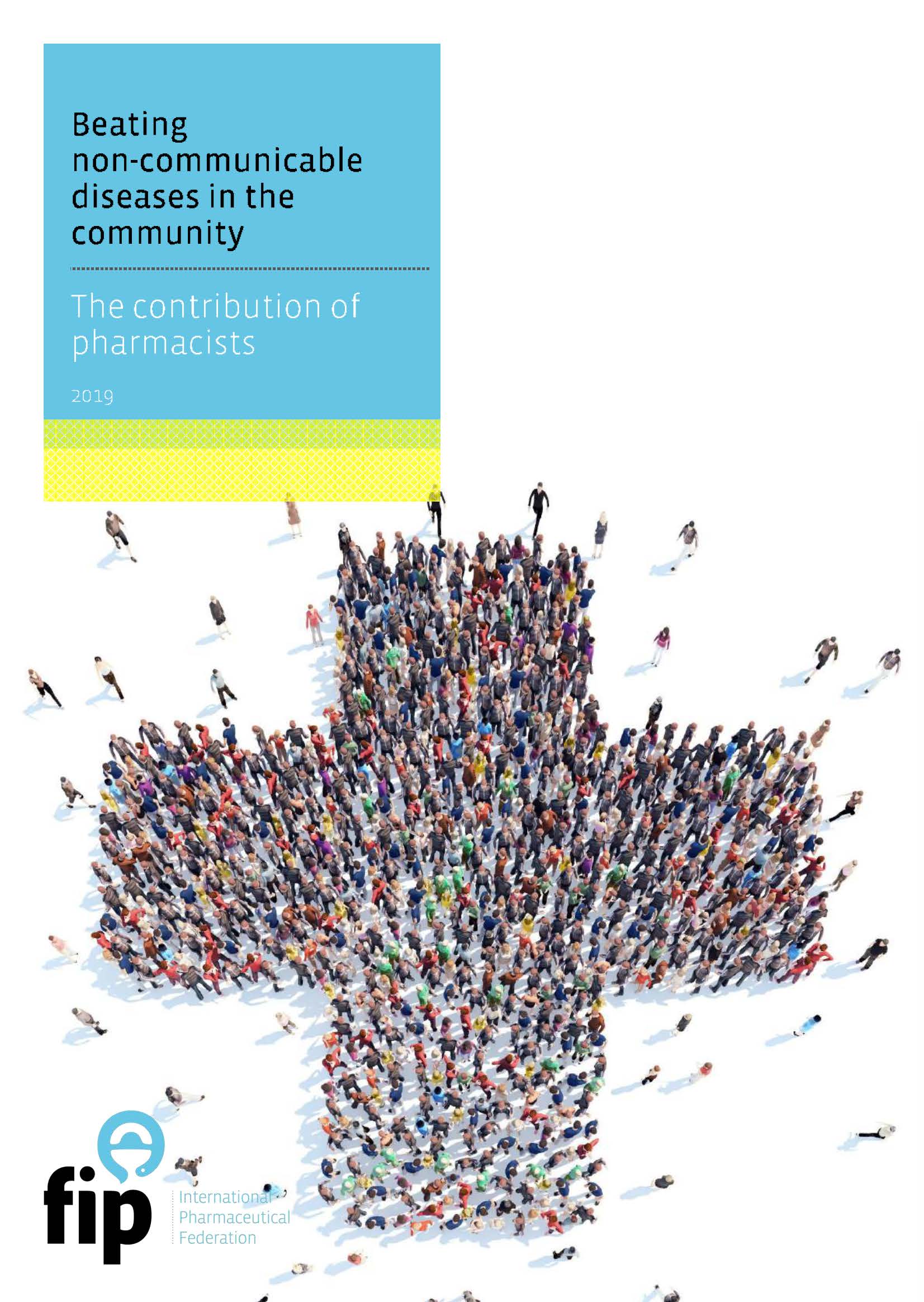
Beating non-communicable diseases in the community: The contribution of pharmacists (2019)
This reference paper provides global evidence to advocate, nationally and internationally, for an expanded role for pharmacists in NCD management by compiling best practices and examples. It also encourages pharmacists around the world to act upon NCDs.
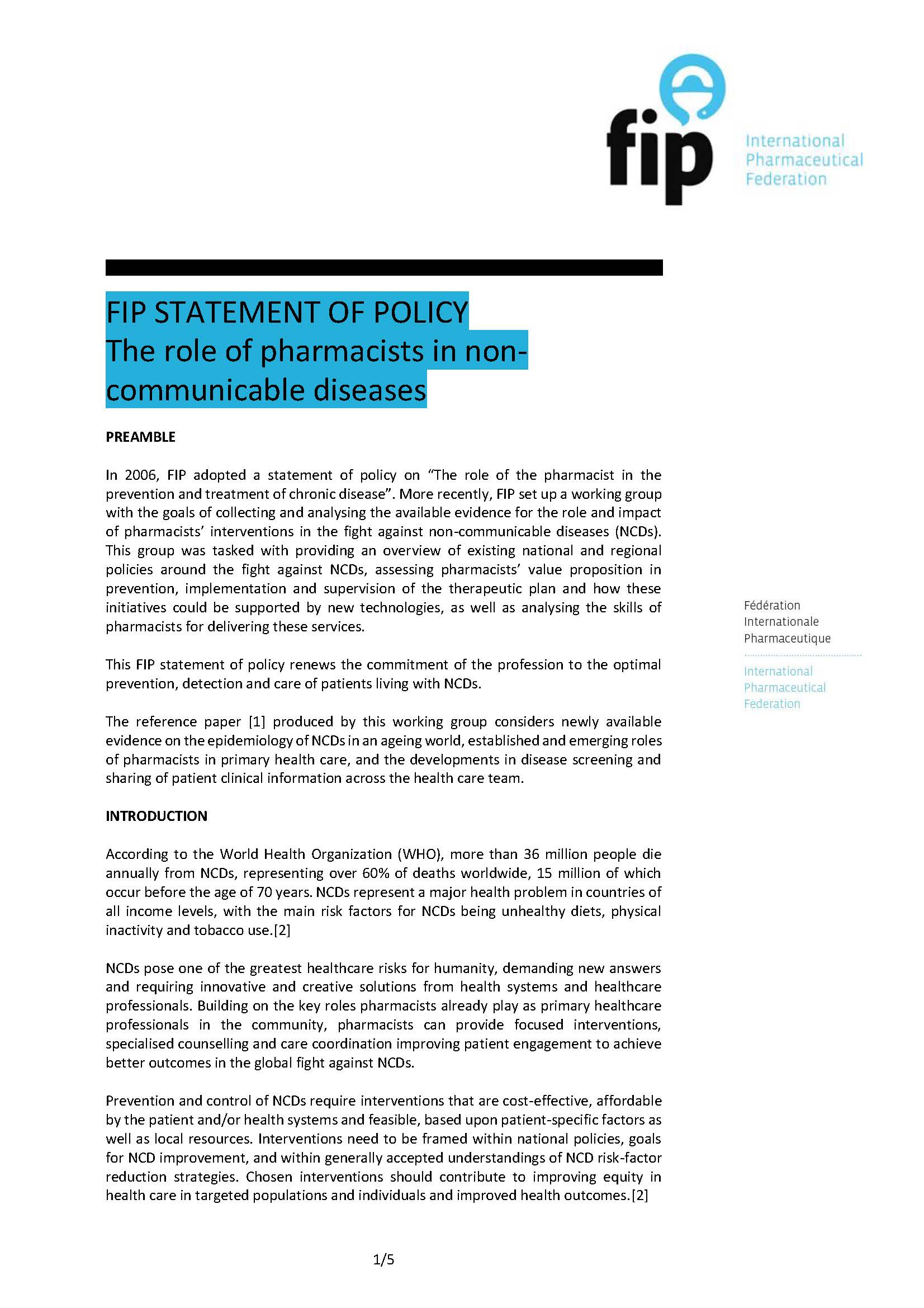
The role of pharmacists in non-communicable diseases (2019)
This FIP statement of policy renews the commitment of the profession to the optimal prevention, detection and care of patients living with NCDs. It replaces the 2006 FIP Policy Statement on the role of the pharmacist in the prevention and treatment of chronic diseases.


